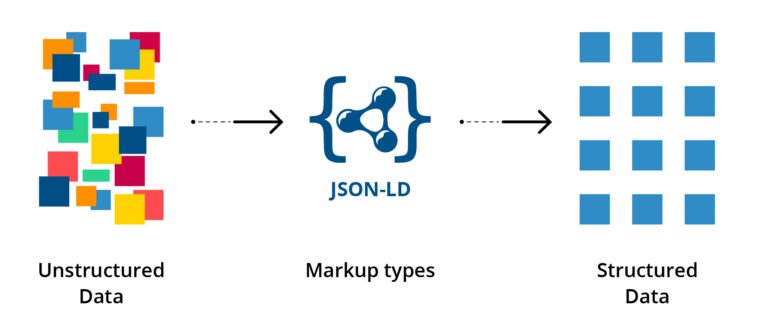Do you want your website to stand out in Google search results with eye-catching features like star ratings, product details, or event highlights? Are you looking for a powerful yet often overlooked SEO technique that can boost your visibility without changing your core content? The answer lies in one powerful tool.
At SEO Khana, we believe that true SEO success isn’t just about keywords or backlinks , it’s about helping search engines understand your content better than ever before. In this article, we’ll explore what this tool is, how it differs from other methods, and why implementing it can make a real difference in your SEO performance. We’ll also introduce helpful tools like generators and validators, and walk you through practical examples such as local business applications and product details for listing pages.
If you’re ready to unlock a hidden advantage and elevate your website’s presence on Google, keep reading. This is your complete guide to mastering schema markup SEO. Before diving in, conducting a thorough on-page SEO audit is essential to identify gaps and ensure your site’s technical foundation is optimized—making schema implementation even more impactful.
What is Schema Markup?
it is a form of structured data that you add to your website’s code to help search engines understand the meaning and context of your content more clearly. It uses a shared vocabulary developed by major search engines (Google, Bing, Yahoo, and Yandex) through a project called Schema.org.
Instead of just reading the text on your site, search engines can use schema markup to identify key details such as:
- Is this page about a product, a local business, a service, or an event?
- What is the price, rating, or availability of a product?
- What are the opening hours of a local store?
By providing this kind of structured information, schema markup enables rich results (also known as rich snippets), which are enhanced listings in search engines. These can include star ratings, images, prices, and other details that make your listing more noticeable and attractive.
Using this technique is especially beneficial for SEO. While it might not directly boost your ranking, it significantly improves how your pages appear in search results, leading to higher click-through rates (CTR).
For instance, if you run a service-based business, applying markup for services helps Google display your offerings directly within the search results. Similarly, examples of local business markup ensure your business appears accurately in local searches.
In short, it is a smart, technical tool that helps search engines understand your content better , making it an essential part of modern SEO strategies.
Schema Markup vs Structured Data
While the terms Schema Markup and Structured Data are often used interchangeably, they’re not exactly the same. Understanding the distinction is important for applying SEO best practices effectively.
What is Structured Data?
Structured data refers to any data that is organized in a structured format, typically using a specific syntax like JSON-LD, Microdata, or RDFa. This format allows machines , like search engine crawlers , to read and interpret information more accurately.
Structured data helps search engines recognize elements on your website, such as:
- Product names
- Prices
- Reviews
- Events
- Articles
In essence, structured data is the foundation that enables enhanced search features like rich results and knowledge panels.
What is Schema Markup?
Schema Markup is a specific vocabulary or language used within structured data, standardized by Schema.org. It defines the types and properties you can use to describe content , like “Product”, “Review”, “Event”, “Organization”, etc.
In other words:
🧩 Structured Data is the format
🏷️ Schema Markup is the dictionary (or vocabulary) used within that format
So, when you use it , you’re essentially adding structured data to your web pages using the vocabulary defined by Schema.org. This is what Google and other search engines recognize and reward with rich snippets.
Why It Matters for SEO
Whether you’re using markup for services, product markup for product listing pages, or local business markup, the goal is the same: to help search engines display your content more attractively and accurately.
Using structured data can improve:
- Search visibility
- Click-through rates (CTR)
- User trust and engagement
It also opens the door to appearing in Google’s advanced search features, like carousels, FAQs, or featured snippets.
💡 Tip: Use tools like the Schema Markup Generator to create your code, and the Schema Markup Validator to test it before adding it to your site.
read more about core web vital and what is it role in your website
The Role of Schema Markup in SEO
In today’s competitive digital landscape, visibility in search results is everything , and Schema Markup plays a key role in boosting that visibility. While it may not be a direct ranking factor in Google’s algorithm, its impact on how your content appears in search results can significantly influence your SEO performance.
1. Enhanced Search Listings (Rich Results)
One of the most powerful benefits of schema markup SEO is the ability to generate rich results, which are visually enhanced listings in search engines. These may include:
- Star ratings
- Product pricing and availability
- Event dates
- FAQs
- Business hours
These elements make your search snippets more engaging, increasing the likelihood that users will click on your page , a direct boost to your click-through rate (CTR).
2. Better Content Understanding by Search Engines
With it, you’re helping search engines understand what your content is about , not just what it says. For example, if you offer for seo for e-commerce an other digital marketing services , using schema markup for services clarifies that your page is about professional offerings, not just general information.
This deeper level of context improves how your content is indexed and matched to relevant user searches, especially for intent-driven keywords.
3. Competitive Advantage in Niche Markets
Using specialized markup , like product schema markup for product listing pages or local business schema markup examples , gives your website an edge over competitors who don’t use schema or implement it incorrectly.
Especially for local SEO, schema can ensure your business shows up with accurate details in Google Maps and local packs, giving customers the information they need immediately.
4. Voice Search and AI Assistants
it also improves your chances of being featured in voice search results. When digital assistants (like Google Assistant or Siri) pull data to answer voice queries, they rely heavily on structured data to determine the most relevant response.
5. Not a Ranking Factor , But a Performance Booster
While Google has stated that it is not a direct ranking factor, it does influence the elements that lead to better rankings , including higher engagement, more time on page, and lower bounce rates.
In short, implementing it is one of the smartest moves you can make in technical SEO. It helps search engines present your content in the best possible light , making it easier for users to discover, trust, and choose your website over others.
learn more about:
Common Types of Schema Markup
There are many different types of Schema Markup, each designed to represent specific types of content on your website. Choosing the right type of markup can significantly improve how your pages appear in search results and increase engagement. Here are some of the most common and valuable schema types for SEO:
1. Local Business Schema Markup
The local business schema markup example is essential for businesses with a physical location. It helps search engines display critical business details in local search results, including:
- Business name
- Address
- Phone number
- Opening hours
- Customer reviews
- Map location
This markup increases your chances of appearing in Google’s Local Pack and improves your visibility for nearby customers searching for services.
2. Product Schema Markup for Product Listing Pages
For e-commerce websites, using product schema markup for product listing pages can be a game-changer. It allows search engines to show:
- Product name
- Price
- Availability
- Star ratings
- Brand information
This makes your product listings more attractive in search results and increases the chances of driving qualified traffic to your site.
3. Schema Markup for Services
If you offer services instead of physical products, using schema markup for services can help search engines understand the type of services you offer. This is particularly useful for businesses in industries like:
- Marketing
- Consulting
- Healthcare
- Home repair
With the right markup, search engines can highlight your service offerings in rich snippets, helping you stand out in competitive markets.
4. Article and Blog Post Schema
This type of markup is used for news articles, blog posts, and editorial content. It helps display the article’s:
- Headline
- Author
- Date published
- Featured image
It increases the chance of your content being included in Google News or Top Stories carousels.
5. FAQ Schema Markup
Adding FAQ schema to your frequently asked questions section enables your questions and answers to appear directly in Google’s search results. This not only makes your result more interactive but can also dominate more space on the SERP.
6. Review and Rating Schema
Used to highlight reviews from customers or experts, this markup allows your listings to show star ratings, reviewer names, and summaries. It builds trust and improves visibility , especially for products and local services.
7. Event Schema
If you’re hosting events , webinars, workshops, concerts, or conferences , event schema markup can display event dates, locations, ticket information, and more right on the SERP.
How to Implement Schema Markup
Adding it to your website might sound technical, but it’s easier than you think , especially with the right tools and strategy. Here’s a step-by-step guide to get you started:
1. Choose the Right Type of Markup
Before anything else, determine the kind of content you’re marking up. Is it a product, a service, a local business, or a blog post? Each type requires specific properties to be effective. Choosing the right category ensures that search engines can display your content in rich results accurately.
2. Use a Generator Tool
If you’re not familiar with coding, tools like a schema markup generator can help you create the necessary code quickly. These tools guide you through entering key information, such as product names, prices, business hours, or service types, and then output the code in JSON-LD format , the format recommended by Google.
3. Add the Code to Your Website
Once generated, place the structured data code within the <head> or <body> of your HTML. For most websites, adding it via a CMS (like WordPress) is straightforward using plugins or theme settings. If you have a developer, they can handle the implementation directly in your site’s code.
4. Test Before You Publish
Always validate your markup before going live. Tools such as the schema markup validator allow you to check for errors, warnings, or missing required fields. This step ensures that your data is readable by search engines and performs as expected.
5. Monitor Performance and Make Updates
After implementation, monitor how your pages appear in search results. Use tools like Google Search Console to check if the structured data is being picked up correctly and to view impressions and clicks. Make updates whenever your content changes , outdated or incorrect markup can cause rich results to disappear.
6. Keep It Clean and Relevant
Don’t try to overuse or misuse markup. Only mark up content that’s visible to users and relevant to the page. Search engines can penalize sites that try to manipulate search appearances by adding misleading or irrelevant information.
Final Tip: Start small. Apply structured data to key pages like your homepage, product listings, or service descriptions. As you get comfortable, expand your use of markup across your site for maximum SEO benefits.
How SEO Khana Use best Structured Data Techniques
At SEO Khana, we strive to be recognized as the best SEO company by offering a full range of SEO services that cater to businesses of all sizes. Our expertise spans from small local shops to large e-commerce websites, ensuring every client benefits from tailored strategies that drive measurable results. With a team of skilled local SEO experts, we focus on increasing your visibility in local search results, helping you reach customers in your area more effectively.
In addition to local optimization, we provide comprehensive technical SEO audit services that uncover hidden issues affecting your site’s performance. Combined with precise on-page SEO optimization, we enhance your website’s structure and content to improve user experience and search engine rankings. Partnering with SEO Khana means you get a dedicated team committed to maximizing your online growth and staying ahead in a competitive digital landscape.
Conclusion
In today’s fast-paced digital world, making your content clear and accessible to search engines is no longer optional , it’s essential. By using structured enhancements in your website’s code, you give your content the opportunity to stand out with richer, more informative search listings that attract clicks and build trust.
Whether you’re a local business, an e-commerce store, or a service provider, adding the right structure to your content can lead to stronger visibility, better user engagement, and a competitive edge in search results. And with tools available to guide and validate your efforts, integrating this strategy has never been more accessible.
If you’re ready to elevate your online presence, this is a smart, forward-thinking step that delivers real results. Let SEO Khana help you unlock its full potential.








I appreciate how this post breaks down schema markup into practical benefits like improved visibility in search results. I’ve noticed a real difference on my local business site after adding structured data for reviews—it’s definitely a powerful way to boost click-through rates.